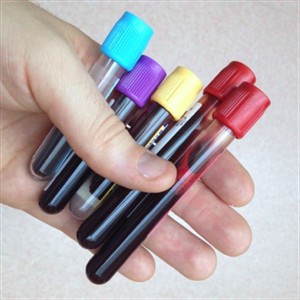Over the weekend, I attended a seminar called “Mastering Functional Blood Chemistry.” We looked at several blood tests like CBC, CMP, thyroid panel, lipid panel, and more. The curriculum at NUHS has a class called Clinical Laboratory Diagnosis that teaches students how to read and understand lab reports. It provided an excellent foundation for me to build upon at the seminar. The blood can tell you a lot of information, especially when coupled with a complete physical exam and knowing the patient’s chief complaint.
 Did you ever wonder how labs determine the reference ranges (“normal values”)? Labs take average values from some patients, probably a few hundred, and determine where the majority fell. Based on algorithms and statistics the lab comes out with reference ranges. Therefore, every lab has slightly different reference ranges.
Did you ever wonder how labs determine the reference ranges (“normal values”)? Labs take average values from some patients, probably a few hundred, and determine where the majority fell. Based on algorithms and statistics the lab comes out with reference ranges. Therefore, every lab has slightly different reference ranges.
One problem with this is that the people used to determine the reference ranges probably aren’t all optimally healthy, meaning the reference range values aren’t necessarily indicative of health. At the seminar, we were given a list of functional lab values where optimal health is reflected. Functional lab values usually have a narrower range that falls within the reference ranges. This allows us to track more closely if a patient is trending toward developing problems before a reference range would flag it as being abnormal. Proactively making lifestyle changes can improve lab values before a medical condition sets in (and even after a medical condition is diagnosed!).




0 Comments